Last Updated on 5 years ago by Nicky Johnson
Find the best Essential Oils for acne in our study. Essential oils such as tea tree oil are botanical extracts that have anti-inflammatory and antimicrobial properties that may help with acne and pimples. Think right and choose right essential oil for your skin type. Essential oils exactly look like a miracle cure for just about anything.
Get Help for Your Skin—Need To Know About Top 5 Best Essential Oils for Acne
Blog Contents
Now that we’ve become more confident using oils on all to help hold blemishes at bay, we’ve tested our fair share of alternatives. These 5 essential oils are among the best for treating acne, so if you’re on the market for a more natural solution to demolishing breakouts, look no further.
You’re going to need carrier oil — a friendly oil that you can use to dilute the essential oils. Jojoba oil is perfect as it replicates the sebum of your own skin and provides mild hydration without clogging the pores.
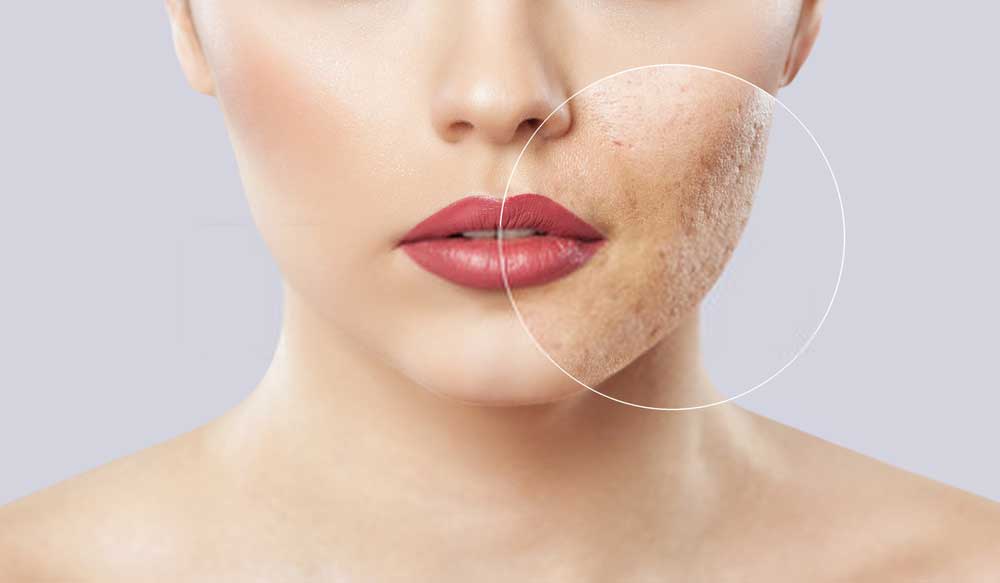
Combo of Essential Oils and Pimples
Pimples are a kind of breakout characterized by excess moisture, overgrowth of bacteria, and build-up of dead skin cells. This leads to swelling, redness, which can lead to pustules or papules.
Essential oils are obtained directly from the bark, vine, fruit, leaf, seed or root of a plant or tree, and then processed, highly concentrated. Only a few droplets can have amazing benefits.
An approximately 80 per cent of all people between the ages of 11 and 30 experience acne illnesses, but it is not unusual for pimps to appear on the faces of those in their 40s or 50s.
Acne Starts
Acne begins after skin flakes and skin excessive oil (sebum) blocks the pores. A blocked pore is a breeding ground for bacteria, in particular Propionibacterium acnes that leads to the growth of pests. Some of the remedies used with acne is to add a topical bacteria-killing agent to the surface of the skin.
Importance of Essential oils
You may have learned that essential acne oils can work magic on your skin. But, let’s make it honest, do they really work? We’re not here to spread rumors — just the facts — so it’s time to look into whether or not essential oils will do something about acne.
The value of essential oils arise from their antioxidant, antimicrobial and anti-inflammatory effects. Studies have shown essential oils to treat and help stop bacterial skin infections, improve sleep quality, reduce anxiety and fight acne-causing bacteria.
Before Choosing Right Essential Oils
You should also make sure that you use a pure essential oil rather than an added aroma. Many essential oils can be innocuous or even beneficial to a lot of people, there’s also the chance that you may have an adverse reaction. If you pick the essential oil to combat blemish, you’ll need to worry of what type of pimple you’re trying to cure.
Primary Ways to Use Essential Oils
There are three primary ways of using essential oils: added to the skin, inhaled or swallowed. Before you add it directly to the skin, first check a slight drop on the inside of the wrist to see if you have any reactions to it.
If you’ve run out of options for treating your skin or are just looking for a more holistic route, there are a number of essential oils that can assist you treat acne.
Also Read:
Little Effort For Toenails To Grow Faster In Just One Week
Which is the Best Shaving Razor? Types of Razor Available for Shaving
Best Electric Razors for Elderly Man
If you have breakouts around your body, you can even apply a few drops to the pool. Sensitive skin types can benefit from adding approximately a teaspoon of essential oils to the mixture.
Top 5 Best Essential Oils for Acne
Here is what you need to understand about using essential acne oils, like pimples, blackheads, and acne scars, before you start adding them to your skin.
Tea Tree Oil Essential Oil
Definitely, no catalog of acne-fighting essential oils will be full without tea tree oil.
Tea tree oil is an excellent treatment for acne as it has antibacterial andanti-fungal effects that are known to minimize inflammation. You just need a tiny amount to destroy acne-causing bacteria deep within your pores.
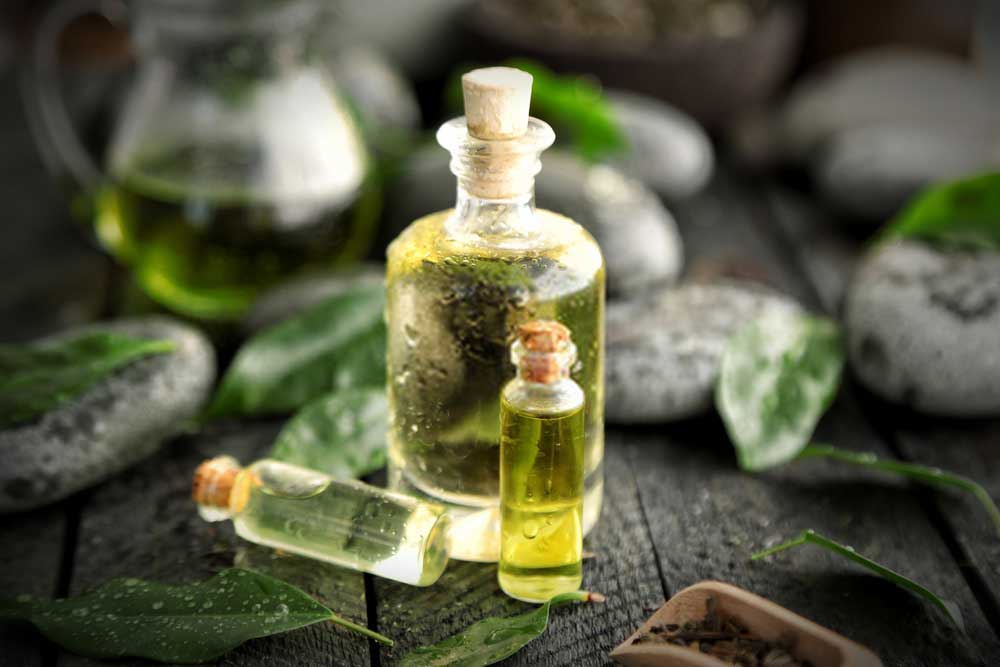
- Tea tree oil is very light and has excellent anti-bacterial and anti-viral properties.
- It effectively works the same way as spot therapy does, by removing germs and bacteria, and since it is anti-inflammatory.
- It easily decreases the size of the pill while not drying out pus.
- If you are trying to avoid pimples until they arise, clinical tests have shown that it is moderately successful and very well accepted when added to acne prone skin to avoid the appearance of pimples and comedos.
- Essentially, if you want to treat pimples with essential oil, tea tree is a perfect place to start.
Frankincense Essential Oil
Frankincense essential oil has all types of skin benefits varying from astringent properties to anti-inflammatory, strengthening, and “tissue remodeling.” Frankincense is perfect for dry skin and acne natural astringent, helps control sebum and prevents the face from feeling like a hot mess by removing excess oil.
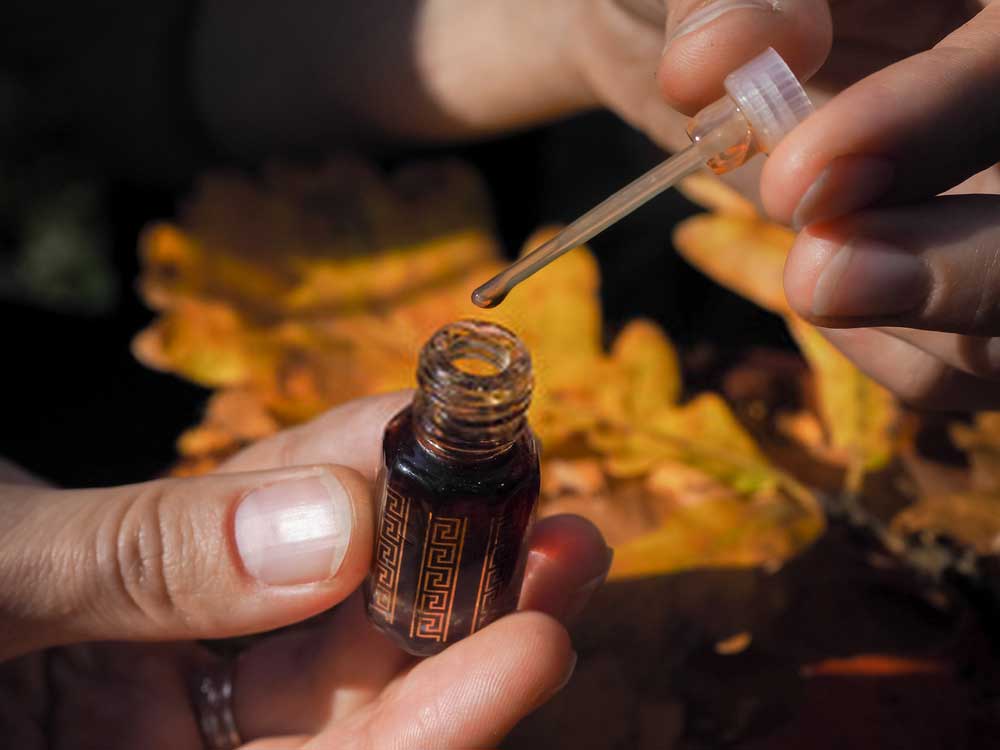
- The above means that it’s a great idea to help recover your skin after an outbreak, especially if you’re handling popped or discolored blemishes.
- Frankincense is pleasant on the skin and can be a successful treatment for acne scarring.
- It also notes that “there is no clear proof that any essential oil may avoid scarring.
- When you are dealing with acne scarring, you may want to schedule an appointment with your dermatologist.
The astringent properties of Frankincense make it suitable for the diagnosis of acne. Use the recipes below or add 2 to 3 drops of frankincense to one teaspoon of jojoba oil and apply to acne. Blend the ingredients together, shake well before each use, and add to clean skin.
Patchouli Essential Oil
Patchouli has a moist, earthy fragrance with fresh fruit-like tones and allows the spirit to ground and absorb strength. This is very calming to the nervous system and can help to alleviate the effects of depression and stress.
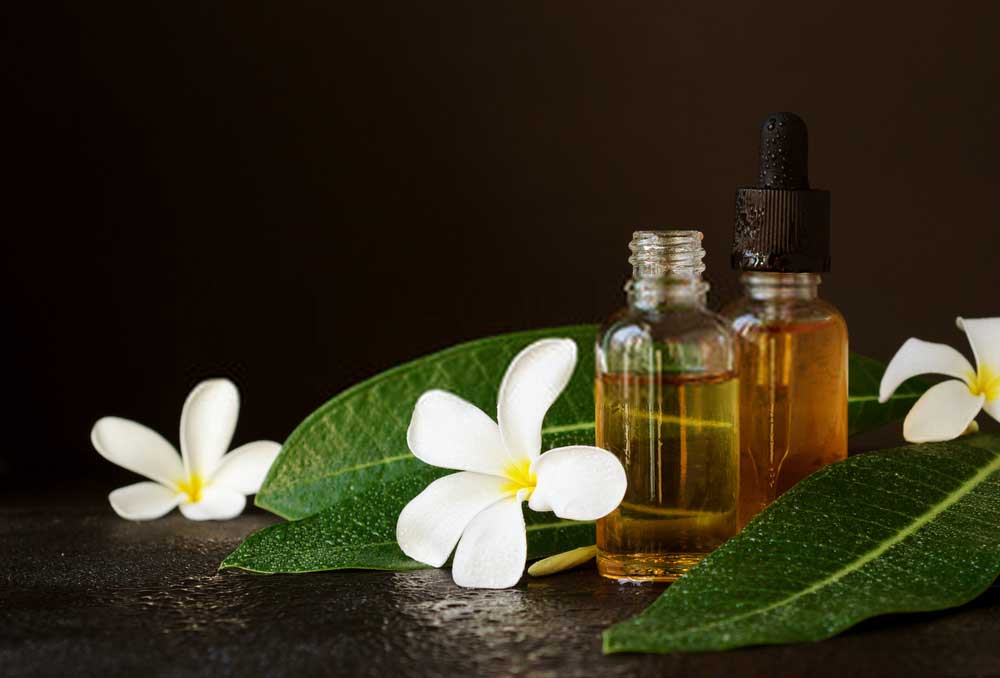
- Patchouli is known as a tissue regenerator that helps promote skin cell repair and treats dry skin, acne and eczema.
- The anti-inflammatory and antibacterial agent is ideal for skin over 35, and is often susceptible to blemishes, making it one of the best additives for adults in the 30’s and 40’s.
- When mixed with carrier oil (such as jojoba, sweet almond or avocado), patchouli essential oil can be applied directly to the skin or introduced to the baths.
- Patchouli oil is considered to be useful for both new scar tissue and old acne scarring, and can also relax and soften skin.
- It is helpful for all skin types, including aging and mature skin.
Also Read:
Top10 Awesome and Amazing Tips to have Pretty Toenails
The Most Elegant Looks When use Argan Oil for Beard
5 Best Shaving Creams for Wet Electric Shaver
Lavender Essential Oil
The essential oil of lavender has a new, aromatic fragrance with woody undertones. It is said to be beneficial for all skin types, particularly skin over the age of 35. Lavender essential oil is used to help treat wounds and reduce inflammation.
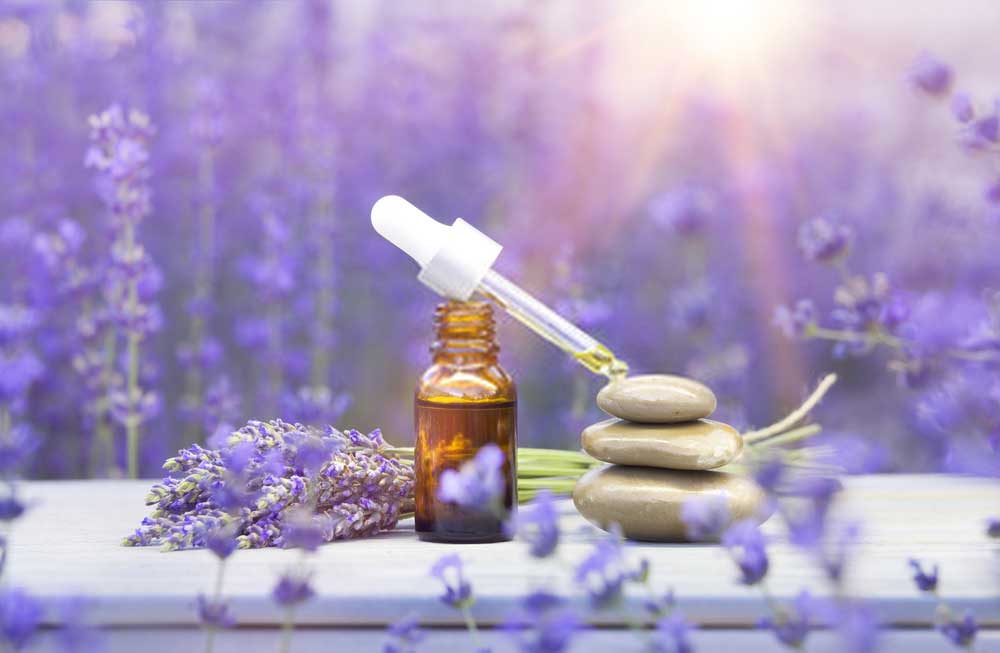
- Its soothing properties make it a perfect cure for popped cysts, pimples and even ingrown hair. This is an incredibly effective component.
- Its ability to relieve nervous stress, relax nerves, enhance mood and boost sleep.
- Lavender facilitates safe cell regeneration and has anti-inflammatory effects.
- This is also well known for helping to prevent acne breakouts due to its antibacterial effects.
- Since certain acne is associated with pain, reducing stress will also slow down breakouts.
- Lavender essential oil should be spread with a cotton swab, focused on the trouble areas.
- It can help avoid the visibility of wounds and can be used on Eczema, Psoriasis and blemishes-prone skin.
- Lavender oil works by reducing the presence of blemishes while calming the skin, meaning you won’t see the dryness, redness, or pain that sometimes comes from acne treatments.
Rosemary Essential Oil
Rosemary essential oil has a powerful, sweet, refreshingly minty fragrance. The dual activity, heating / cooling feeling, is considered helpful for the relief of inflammation. Rosemary oil also allows stimulate circulation, so it not only clears up breakouts, but gives you a clearer, smoother, more radiant overall skin.
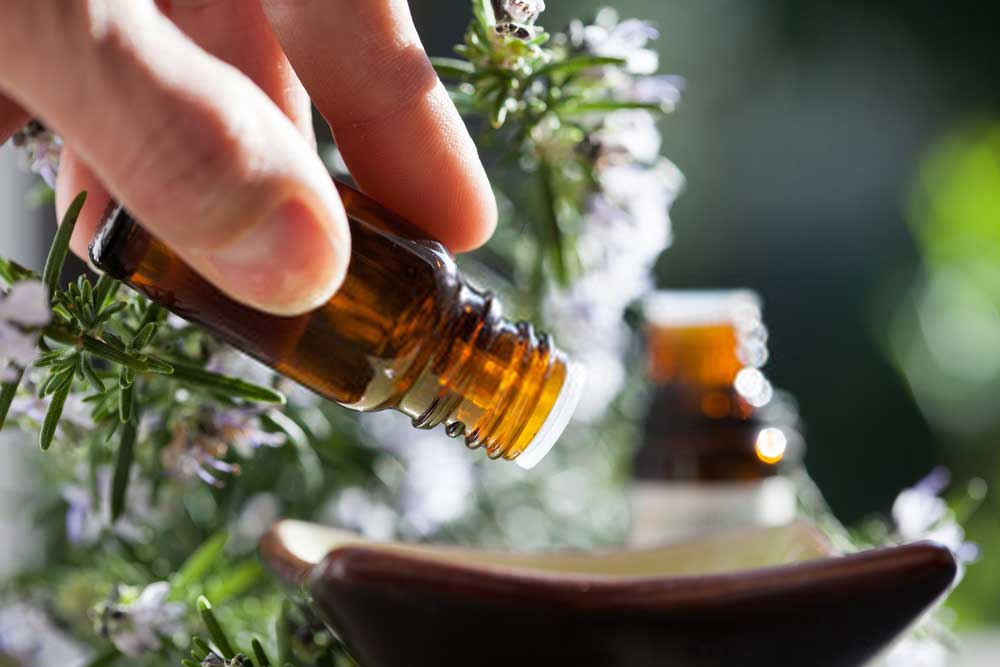
- Rosemary is calming and reshaping, helping to clear the mind and relax the body.
- Great for improving circulation and alleviating general aches and pains.
- Popular for its use in hair care, its skin condition benefits and increased circulation.
- Rosemary is one of the popular essential oils for acne and blemishes-prone skin.
- Blend five drops of rosemary with a teaspoon of carrier oil.
- It can also be improved by adding other acne-fighting essential oils, such as tea tree oil, as the mixtures are particularly successful in the treatment of cystic acne.
Is this Safe for Skin?
As essential oils can produce an allergic reaction, you can never apply them directly on your skin undiluted. Mixing them with a Comedogenic liquid such as coconut oil will make acne worse. Besides, it’s hard to recreate the formulas used in laboratory experiments at home.
If you have damaged or irritated skin, you will certainly be free of essential oils. Don’t use citrus oils like lemon, orange or lime on your skin, no matter what, even in distilled form.
Topical uses of essential oils can lead to rash and discomfort if you do not dilute them beforehand with carrier oil. Before using them, put a small amount of diluted essential oils on your skin — say, on your forearm — and wait 24 hours to test for an allergic reaction.
Final Words for Best Essential Oils for Acne
Before using essential oils, seek advice from your dermatologist, particularly if you have any underlying disorders such as eczema, rosacea or psoriasis. Avoid using essential oils immediately if you have any adverse reactions.
Its anti-inflammatory, antibacterial and soothing properties, essential oils are used for a number of skin-care purposes. Although work on the effectiveness of ingredients is underway, advocates suggest that oils will help rough, oily and acne-prone skin.
My Opinion
According to me, Essential oils don’t get rid of wrinkles, but they do help to reduce them. Essential oils and other oils can help to minimize the appearance of scars by reviving damaged skin cells. Certain essential oils provide medicinal benefits. Some essential oils are helpful in alleviating itchy skin and are healthy when used correctly.
Some people believe that because essential oils are pure ingredients, they do not have side effects. It’s not valid. Potential side effects of essential oils include: itching and scorching: always dilute the oil with the carrier oil before adding it to the skin.
Frequently Asked Questions (FAQs)
Can Essential Oil Cause Acne?
Is it possible to use essential oils on your face? Because essential oils can induce an allergic reaction, you should never place them directly on your skin, says Dr. Katta. Mixing them with a comedogenic product, such as coconut oil, will make acne worse.
How Get Rid Acne Fast?
- Do ice the zit.
- Do apply a paste made of crushed aspirin.
- Don’t pick your face.
- Don’t over dry the affected area.
- Do tone down on toner.
- Do use makeup with salicylic acid.
- Don’t wear makeup with pore-clogging ingredients.
Will Ice Shrink A Pimple?
Ice is difficult to function with non-inflammatory types— also known as blackheads. Theoretically, a steady decrease in the size of the ice prescription will gradually help it go away entirely. If used on reactive acne, ice also has the ability to reduce redness, leaving the pimples less visible.
Why Is My Acne Not Going Away?
If too much sebum is produced, the oil will clog pores and hair follicles. This is what causes bacteria, which contributes to acne. Greasy ingredients, sugar, and dairy products do not induce acne, but can intensify acne. And if you’re on a stringent skincare routine, but your skin doesn’t clear up, you can take a look at your diet.
Can Essential Oils Help With Acne?
Both rosemary and frankincense are known for treating acne by reducing microbials and inflammation. Clary sage is also used for acne and on oily skin. The following oils may also help acne-prone skin types.
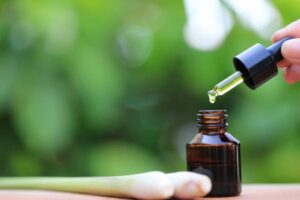
Comments are closed.